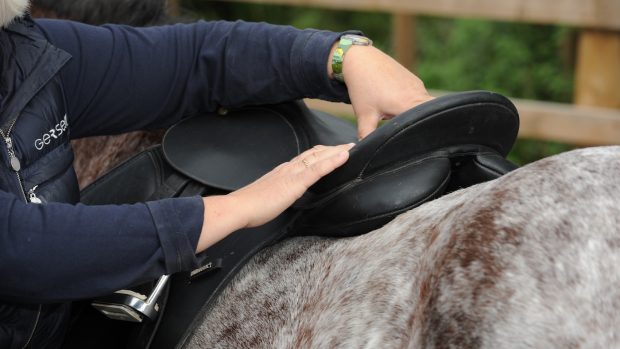The temperature ranges used as an important measure of equine health may be too high for healthy horses, a study has found.
Researchers from Nottingham Trent and the Royal Agricultural universities who investigated the use of body temperature in assessing horse health found that current guidelines may be inaccurate.
Rectal temperature is vital in monitoring equine wellness, and allows early detection of infections, and conditions such as colic, but while many sources have stated “normal” ranges for years, there has been no recent published work on whether these values accurately represent healthy equines.
As part of the research, Emily Hall, Anne Carter and Carol Hall from Nottingham Trent University (NTU), with Anne Stevenson from the Royal Agricultural, researched the normal body temperature of horses on the NTU yard.
They found the 38.5C upper limit as published to be typically 0.5C higher than the clinically normal horses used in the study. In 600 measurements from 41 healthy adult horses, it was found the normal temperature range was between 36C and 38C.
Lead researcher and vet Emily Hall said: “Due to factors such as antibiotic resistance, climate change, and ever-increasing movement of horses, it is increasingly important that early signs of ill-health or disease are picked up as early as possible.
“By establishing a reference range specific to the yard at NTU, we can now be more confident in identifying horses that are too hot, or too cold, and take appropriate action.”
Continues below…

Unnecessary rugging could compromise equine welfare, study finds
The research compared horses’ temperatures in different types of rug

Subscribe to Horse & Hound this spring for great savings

Light cotton rugs not ‘adequate’ alternative to shade in hot temperatures, researchers find
The research was recently published in the Journal of Veterinary Behaviour
The study found the overall equine temperature reference ranges cited in textbooks may need reviewing and updating. The aim is to repeat this study on yards around the UK to review the overall normal range for all horses across the UK.
The study has been published in the Journal of Equine Veterinary Science.
For all the latest news analysis, competition reports, interviews, features and much more, don’t miss Horse & Hound magazine, on sale every Thursday.





